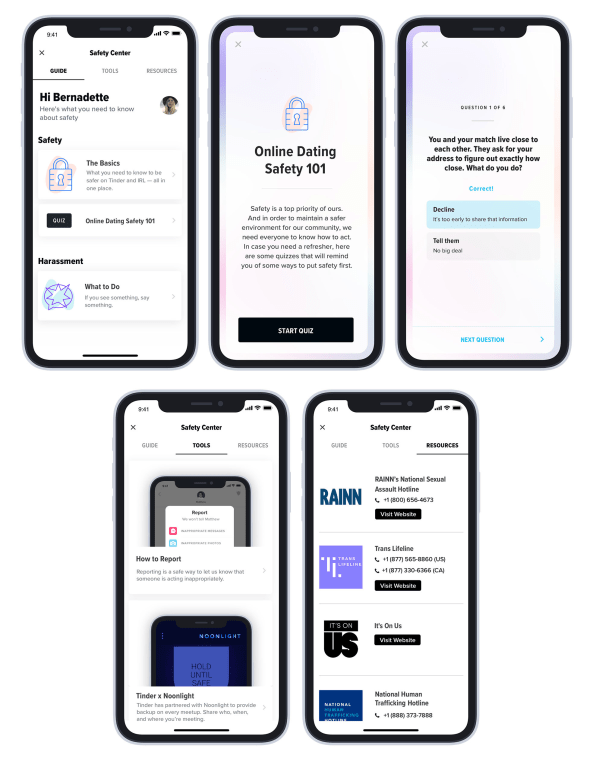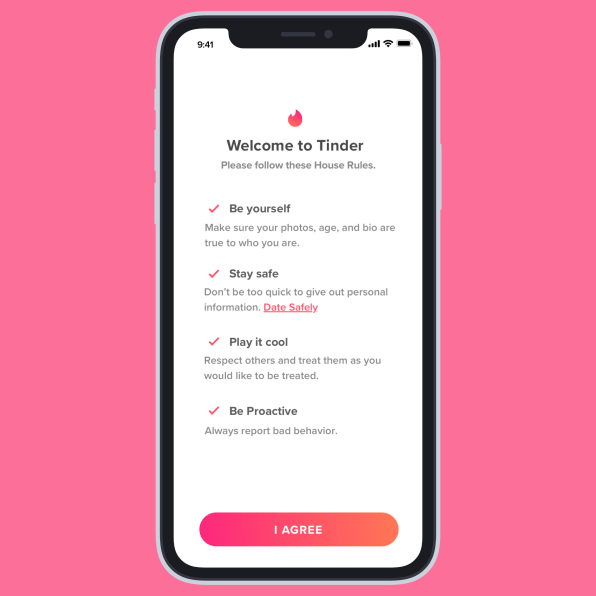Tinder parent company Match Group announced Monday that it plans to bring background checks to the dating app later this year. To do so, it plans to work with Garbo, a New York nonprofit focused on background checks around violence and abuse, to make it easy for people to find out if their matches have documented histories of such behavior.

[Photo: courtesy of Tinder]
Garbo’s overall goal is to work with vulnerable populations including women, people of color, and LGBT people to protect them from gender-based violence. It aims to provide inexpensive or free access to information that’s buried in paywalled court records or otherwise difficult for people to access, like convictions for crimes of violence or civil restraining orders.
“We fundamentally believe that public record access should be free, if not very, very low cost,” says Garbo founder Kathryn Kosmides, who is herself a survivor of gender-based violence.
Relationship violence is unfortunately quite common, especially against women, and violence linked to dating services has existed long before the internet. Tinder already provides users with safety tips like meeting in public and avoiding accepting drinks from strangers, as well as ways to report people who behave inappropriately on the platform. Match Group announced a partnership with the anti-sexual violence group, Rape, Abuse & Incest National Network (RAINN), late last year, to review its existing safety measures and reporting tools.

“Every person deserves safe and respectful experiences, and we want to do our part to create safer communities on our platforms and beyond,” Breeden said at the time.

[Photo: courtesy of Tinder]
Kosmides says Garbo works with experts to determine what types of records to provide through its system, which presently has a waitlist for new users looking to get access, after having run a limited, New York-focused public beta test last September. It excludes records of things like traffic violations and drug possession that aren’t correlated with violence but are linked to racial bias in policing. It also doesn’t provide personal information like addresses, phone numbers, or email addresses, she says.
Exactly how the Garbo feature will be integrated into Tinder and what the costs, if any, will be to people who choose to use it remains to be determined. It won’t automatically run background checks on Tinder users—the company doesn’t necessarily have enough information to do so and isn’t aiming to become a repository of such sensitive data—but it will likely enable people to do so using information like names and phone numbers they’ve gathered through conversations with people on the app, says Breeden. (Garbo’s systems can also flag if information doesn’t add up, like if someone provides a first name that doesn’t match what’s associated in records with a phone number, Kosmides says).

Representatives from Match and Garbo will also work together to make the messaging clear to users about integrating background checks into their online dating experiences and how to think about the results. Breeden makes it clear that background checks alone can’t replace other safety precautions in dating or other arenas: “No approach to safety should begin and end with background checks,” she says, but she’s hopeful that providing access to information will help keep more people safe from violence.
“It’s something that women and marginalized communities face day in and day out thinking about their safety,” she says.
(37)